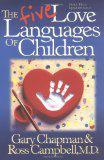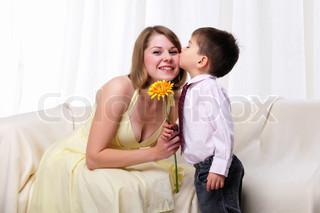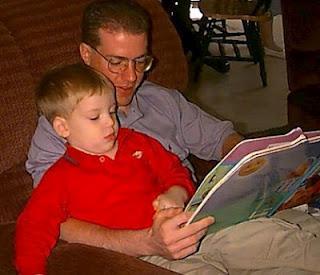Knowing the 5 Love Languages of love is also very beneficial to parenting. If it’s vital to know your spouse’s primary love language, it’s just as vital to know the love language of your children.
 In fact, one of the offspring of the best seller is called The 5 Love Languages of Children which is among the books I recommended as parenting books for dads.
In fact, one of the offspring of the best seller is called The 5 Love Languages of Children which is among the books I recommended as parenting books for dads. (I know I'm supposed to make a mom equivalent for Mother's Day. My apologies, work is still quite intense. However, only a few of those books are dad specific. The rest could be read and used by both parents).
Anyway, back to the topic.
Imagine a teenager running away from home, possessing in his heart great anger and resentment towards his parents. “They don’t love me” he bitterly barks to his friends.
The grief-stricken parents, meanwhile, tearfully cry out, “How could he do this to us? After all we’ve done for him!!”
Do the parents genuinely love the teen? Of course! But, maybe, they didn’t show it very well, or in the love language the teen understands. The problem was not sincerity; it was how this sincerity was displayed.
So let’s review, folks. What are the 5 Languages of Love? Then, how can we figure out what is the best approach with our children? So, he’s the 5 Languages of Love (taken from the book’s website)
• Words of Affirmation: Actions don’t always speak louder than words.
• Quality Time: Nothing says, “I love you,” like full, undivided attention.
• Receiving Gifts: The perfect gift or gesture shows that you are known, you are cared for, and you are prized above whatever was sacrificed to bring the gift to you.
• Acts of Service: The words he or she most want to hear: “Let me do that for you.”
• Physical Touch: A person whose primary language is Physical Touch is, not surprisingly, very touchy.
Now, each one of us has a primary love language that supersedes all others. We have to find out what that is. My wife’s primary love language is both physical touch and acts of service (yes, she’s bilingual). In all the ways that I show love to my spouse, but I need to put a premium on these two.
For the kids, we need to figure out their primary language, too. Of all the ways to show love to our kids, one or two stands out the most, and we have to give them primary attention if we want to most effectively show our love to them..
So how do we do that? Three things we should observe.
 1. How the child expresses love to you
1. How the child expresses love to youI suspect my eldest daughter, Lynn, especially during her younger years, is part human/part koala. She’s VERY huggy, and when she slept with us when she was smaller, she’d love to wrap her arms around us in a bear-hug (both over and under). What’s her main love language, do you think? Physical touch.
So every now and then, I’d put my arm around her shoulder when we walk. We’d high-five a lot, too. She loves to touch, it makes her feel special when I touch her.
 2. What is my child requesting of me?
2. What is my child requesting of me?I have a practice of “dating” my kids. This means that I spend quality time with only one child at a time, no mommy or siblings around. My kids live for these dates, but the one who asks for it the most is my middle child, Mesoo. She asks for dates with daddy all the time. Furthermore, she’s also the one who most often asks to go to friends’ houses or to have friends over.
I’m getting a pretty good idea that Time is a very big love language for her. We don’t have to do anything expensive or grandiose. Just being together is great for her.
In fact, I remember last school year, we spend a lot of time together because she played little Cosette in the high school play (where I taught). Towards the final leg of the practices, as we were walking towards the car, she said “Dad, you’re the best father. I wish other kids have a dad like you.” (Words of affirmation, another huge Love Language for her)
I was touched, but I was wondering what made her say that. All we did was go to rehearsals. Quality time, just simply being together, meant so much to her.
 3. Observe the way they treat other children.
3. Observe the way they treat other children.How my kids show love to their peers is a great gauge on what their primary love language is. Again, Mesoo loves going to the other friends’ houses or having them come over ours. I see Lynn and her best friend hold hands often, because Lynn is a touchy person.
It’s important to express your love for your family in all five languages, of course, but I think these three tips would maximize how special you can make your kids feel by hitting the bulls-eye on their primary love language.
Surely, this gem of a book helps us find out the love languages of our children and how to maximize them to their benefit and the benefit of the home. The 5 Love Languages for Children is available on paperback and Kindle. Make sure to check out the other books I recommend for parents.
Oh, since Words of Affirmation is by far my primary love langugage, so me some love by leaving a comment.

